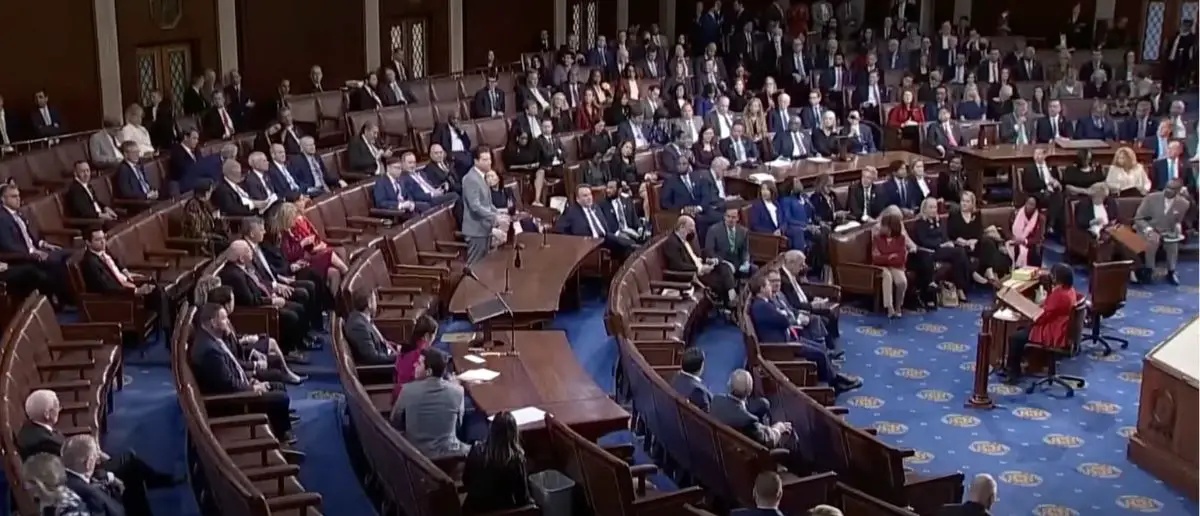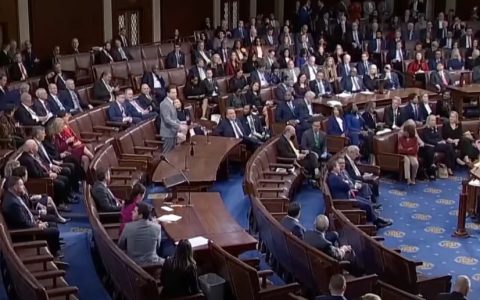
America has an internal problem. Even those who are given citizenship don’t appreciate this country.
Now lawmakers are pushing for game-changing citizenship reform.
House Republicans Propose English-Only U.S. Citizenship Test to Standardize Naturalization Process
Rep. Randy Fine (R-Fla.) announced plans to introduce a bill requiring all components of the U.S. citizenship test to be conducted exclusively in English, eliminating existing language exemptions for the civics portion, Fox News Digital reported. The proposal follows President Donald Trump’s March executive order designating English as the official language of the United States, aiming to standardize the naturalization process and ensure linguistic consistency for new citizens.
Details of the Proposed Legislation
The U.S. citizenship exam includes multiple sections, with most requiring English proficiency. However, current law permits applicants aged 50 or older with 20 years of U.S. permanent residency, or those 55 and older with 15 years, to take the civics test—consisting of 10 questions from a pool of 100 on U.S. history and government—in their native language with an interpreter fluent in both English and their language. Fine’s bill would remove these exemptions, mandating that all applicants, regardless of age or residency duration, take the entire test in English.
Fine told Fox News Digital, “The fact that U.S. citizenship applicants can currently use an interpreter to take the naturalization test undermines the idea of assimilation into American culture. If you want to live in an English-speaking country, you should be able to speak English, period.” He added, “My bill will require all applicants to take the naturalization test exclusively in English, because both metaphorically and literally, everyone who enters our country with the intent of staying should speak our language.”
Context and Expected Debate
The bill comes amid a broader push by House Republicans to align immigration and citizenship policies with national priorities, following the passage of the Safeguard American Voter Eligibility (SAVE) Act in April, which requires proof of citizenship for federal elections. In 2024, only 15% of naturalization applicants used interpreters for the civics test, according to U.S. Citizenship and Immigration Services data, but Fine’s proposal aims to ensure all new citizens can engage fully in American civic and economic life without language barriers.
The legislation is likely to face opposition from Democratic lawmakers and immigrant advocacy groups, who may argue it could limit access to citizenship for older applicants or those with limited English proficiency.
Rep. Joe Morelle (D-N.Y.), who opposed the SAVE Act, has previously criticized similar measures as creating unnecessary hurdles for legal immigrants. Advocacy groups like the American Immigration Council are expected to challenge the bill, citing the contributions of non-English-proficient immigrants to the U.S. economy and society.
Alignment with Trump Administration Priorities
Fine’s proposal builds on Trump’s executive order, the first to formally declare English as the official language, signed on March 3. The order has spurred related actions, such as the Department of Government Efficiency’s efforts to streamline federal programs and prioritize national interests.
The bill also complements Republican-led initiatives in states like Missouri and Texas, where new congressional maps approved in 2025 aim to strengthen GOP representation in the 2026 midterms, reflecting a broader strategy to advance conservative policies.
Fine, a freshman congressman elected in April to Florida’s 6th District, has aligned closely with Trump’s agenda, focusing on border security, election integrity, and cultural cohesion. His bill is expected to gain support from House Republicans, including Speaker Mike Johnson (R-La.) and Rep. Matt Gaetz (R-Fla.), but faces challenges in the Senate, where a 60-vote threshold is needed to overcome a potential filibuster. Senate Majority Leader John Thune (R-S.D.) has not yet commented on the proposal but supported similar measures like the nuclear option for batch confirmations of Trump’s nominees on September 11.
Comparison to Other State Actions
The bill contrasts with legislative efforts in states like California, where the Democratic-controlled Senate passed a measure on September 11, banning law enforcement officers from wearing face coverings during operations, a move aimed at federal immigration agents.
Critics, including California GOP lawmakers, argue such policies hinder federal law enforcement and prioritize local agendas over national security. Fine’s proposal, conversely, seeks to unify citizenship standards, emphasizing English as a common language to foster integration.
The legislation is set to be formally introduced next week, with debates expected to intensify as immigrant advocacy groups prepare responses. The outcome will shape the naturalization process and influence broader discussions on immigration policy as the 2026 midterms approach.





